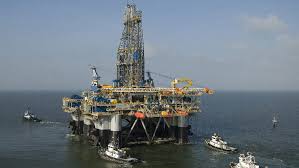
The Federal Government has approved 37 new crude oil evacuation routes nationwide as part of comprehensive reforms aimed at boosting production and combating oil theft.
The Chief Executive of the Nigerian Upstream Petroleum Regulatory Commission (NUPRC), Gbenga Komolafe, announced this development during his keynote address at the 24th Nigeria Oil and Gas (NOG) Energy Week 2025 conference in Abuja on Wednesday.
Speaking on “Positioning Nigeria’s Upstream Oil & Gas for Energy Security, Sustainability, and Economic Resilience,” Komolafe said the new evacuation routes form a critical component of efforts to restore asset integrity, secure crude transportation, and support the ongoing Project One Million Barrels Per Day (1MMBPD) initiative.
“With 37 new evacuation routes approved and implemented in partnership with security agencies, we are successfully curbing theft and boosting accountability,” Komolafe declared.
He highlighted the impact of these reforms, noting that Nigeria’s crude production has risen from 1.46 million barrels per day (bpd) to 1.7 million bpd, with an ambitious target of 2.5 million bpd by 2026.
“The rig count has also increased significantly from just 8 rigs in 2020 to 44 rigs today. This represents a remarkable achievement for the upstream sector and the nation,” Komolafe added.
The NUPRC boss credited the sector’s transformation to policy reforms under President Bola Ahmed Tinubu’s administration, particularly the implementation of the Petroleum Industry Act and three key executive orders issued in 2024. These directives Executive Orders #40 on fiscal incentives, #41 on local content, and #42 on cost efficiency and contracting timelines have attracted over $16 billion in new investments within two years.
Komolafe emphasized that securing crude oil infrastructure and enhancing domestic energy resilience remain pillars of the reform agenda. The commission’s Domestic Crude Supply Obligation initiative now guarantees steady feedstock supply to local refineries, reducing Nigeria’s dependence on imported fuel and strengthening the downstream value chain.
“Our focus extends beyond exports; we are building a robust domestic supply chain to enhance economic resilience,” he explained.
In addition to infrastructure and policy reforms, Komolafe revealed that NUPRC is undergoing a digital transformation to streamline regulatory processes and bolster investor confidence.
“Through full-scale digitization, we are delivering speed, efficiency, and transparency to investors. Our platforms are data-driven and responsive, enhancing clarity and accountability,” he said.
On community relations, Komolafe noted progress with the HostComply platform, a digital tool that tracks oil companies’ obligations to host communities, fostering peacebuilding and building trust.
“We have transformed social license to operate from mere rhetoric to an operational imperative,” he said.
Reaffirming Nigeria’s commitment to climate action, Komolafe reiterated the country’s net-zero emissions goal by 2060 and warned operators undermining the Nigerian Gas Flare Commercialisation Programme would face strict sanctions.
“We have already taken regulatory action against producers who failed flare capture deadlines. By next year’s NOG conference, we expect to showcase operational flare capture projects that embody our climate ambition,” he stated.
Closing his remarks, Komolafe called on investors to seize the momentum generated by upstream reforms.
“Nigeria is not on the sidelines of the energy future; we are shaping it. With visionary leadership, bold reforms, and a clear net-zero path, we offer a pragmatic, equitable, and resilient energy transition model,” he said.
He echoed President Tinubu’s call: “Nigeria must not only be open for business; it must be irresistible for investment.”
The NUPRC chief pledged to deepen upstream investment, accelerate reserve development, increase production, and strengthen domestic energy security and sustainable growth.
He outlined further plans to sustain transparent licensing rounds under the Continuous Acreage Licensing Framework, accelerate frontier basin exploration, fast-track reactivation of shut-in assets, and drive the 1MMBPD initiative with increased rig deployment and enhanced recovery techniques.
“To protect production, we will expand evacuation infrastructure and deploy the Advanced Cargo Declaration System to curb theft and improve export transparency,” Komolafe concluded.





